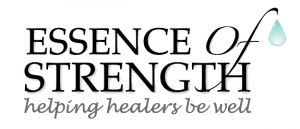I am a black woman physician who retired early from clinical practice in obstetrics and gynecology. That truth gives me guilty feelings about the impact my absence from clinical medicine has on known racial disparities in healthcare outcomes. Both anecdotal and research-based evidence indicate black patients do better with black doctors.
That is not a swipe at non-black physicians. The fact is we live and work in a country founded on slavery, institutional racism and white supremacy. That influences how patients react to doctors and vice versa. The result is a mistrust many African Americans have towards healthcare institutions and a bias (implicit and overt) many healthcare professionals have when interacting with black patients.
The main thing that causes me regret about not seeing patients anymore is the idea I am one fewer physician of color in the clinic, the OR and the L&D floor. I can’t tell you the number of patients who were thrilled to see my dark-skinned face walk into the room when they met me for the first time. There can be power and comfort in that presence for patients who feel marginalized by society as a whole and the healthcare system in particular.
The irony for me is knowing myself well enough to realize I would have ended up disappointing those same people had I stayed clinical. My disillusionment with life as a physician was so great, I could sense the deterioration of the bedside manner that made the greatest cultural difference in caring for underrepresented patients.
Being a healer and an advocate for folks who put their trust and hope in me requires me to have tools and strategies to sustain that healing and advocacy work. Otherwise, I would simply be another physician giving patients intellectual and technical skill without a healing connection. In an interesting turn of events, the process of learning those necessary tools and strategies brought me to a recognition of the need to advocate for my physician colleagues also.
It is tempting to wallow in my angst over no longer being on the front lines of healthcare for underrepresented groups. Instead, I choose to optimize the opportunities I still have to impact medical outcomes in a positive way. There are two methods that I employ most often.
1 – I am a knowledgeable resource for my personal network.
I’m a middle-aged overachiever who has spent her life around other overachievers since adolescence. Since all that education tends to push childbearing off a bit, I have a decent number of older black moms in my crew. With the recent mainstream media coverage of increased black maternal mortality regardless of socioeconomic status, first-time mom jitters are higher than typical among highly educated, pregnant black women. It is my pleasure to act as a de facto concierge pregnancy consultant for the ones I know.
For the most part, I triage the questions they are shy about asking their obstetrician. Sometimes, I give the go ahead to call their doctor immediately. Other times, I simply reassure them they can wait until their next appointment to address it. To my colleagues still in the game – you’re welcome.
2 – I am a professional guide for my fellow physicians.
Because I stopped practicing early due to burnout, I know how susceptible young physicians are if they aren’t intentional about avoiding it. They need systems and tools to maintain their sense of satisfaction and well-being. It is my mission as a physician coach to ensure they learn how. This is important for them personally and for the healthcare systems in which they work.
Providing culturally competent care for all patients requires compassionate and energized physicians. Emotionally exhausted doctors may be able to go through the motions of patient care status quo. They won’t be engaging in any extracurricular activities to innovate and improve the system. That ability to utilize their knowledge and abilities outside the exam room is what we really need to make the necessary shifts in healthcare disparities.
I like to believe I am still having a positive influence on health outcomes for black patients in America. The key for all of us, away from or at the bedside, is to be intentional and available.
Did you enjoy this article? Sign up here to have blog updates, a monthly newsletter and resources for success with satisfaction delivered directly to your inbox.
If you would like help being intentional with and available for your priorities, please click here to request an Essence of Strength complimentary clarity conversation.
Dr Jattu Senesie is a board-certified obstetrician-gynecologist, certified success coach, physician satisfaction specialist and speaker. She blogs about issues of self care and well-being in an effort to help her fellow altruistic high achievers find satisfaction in their success as early in their careers as possible.





